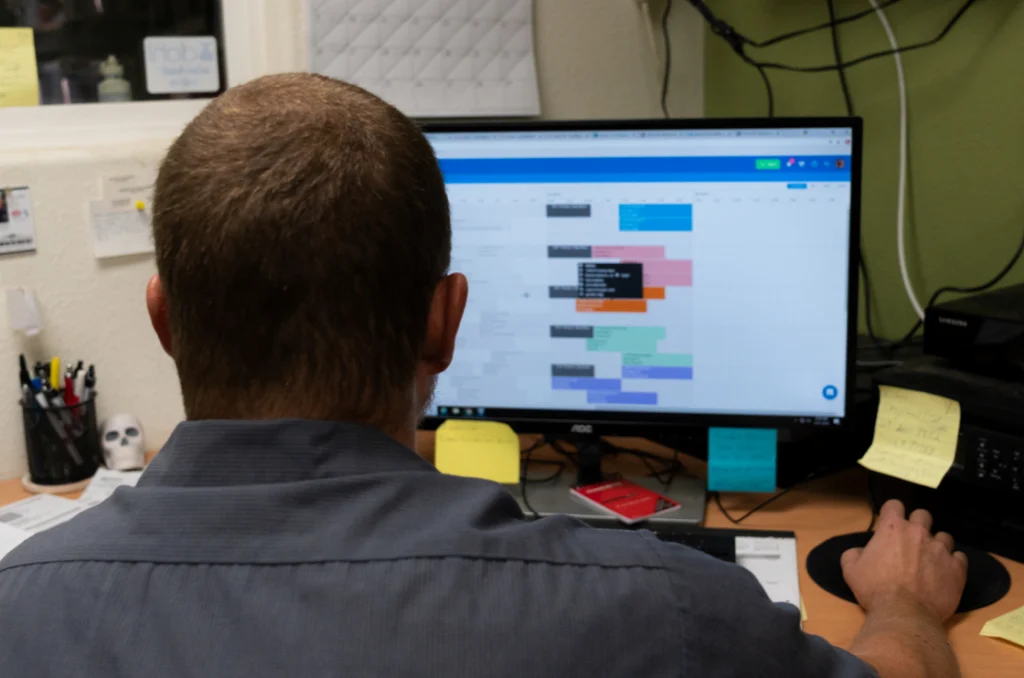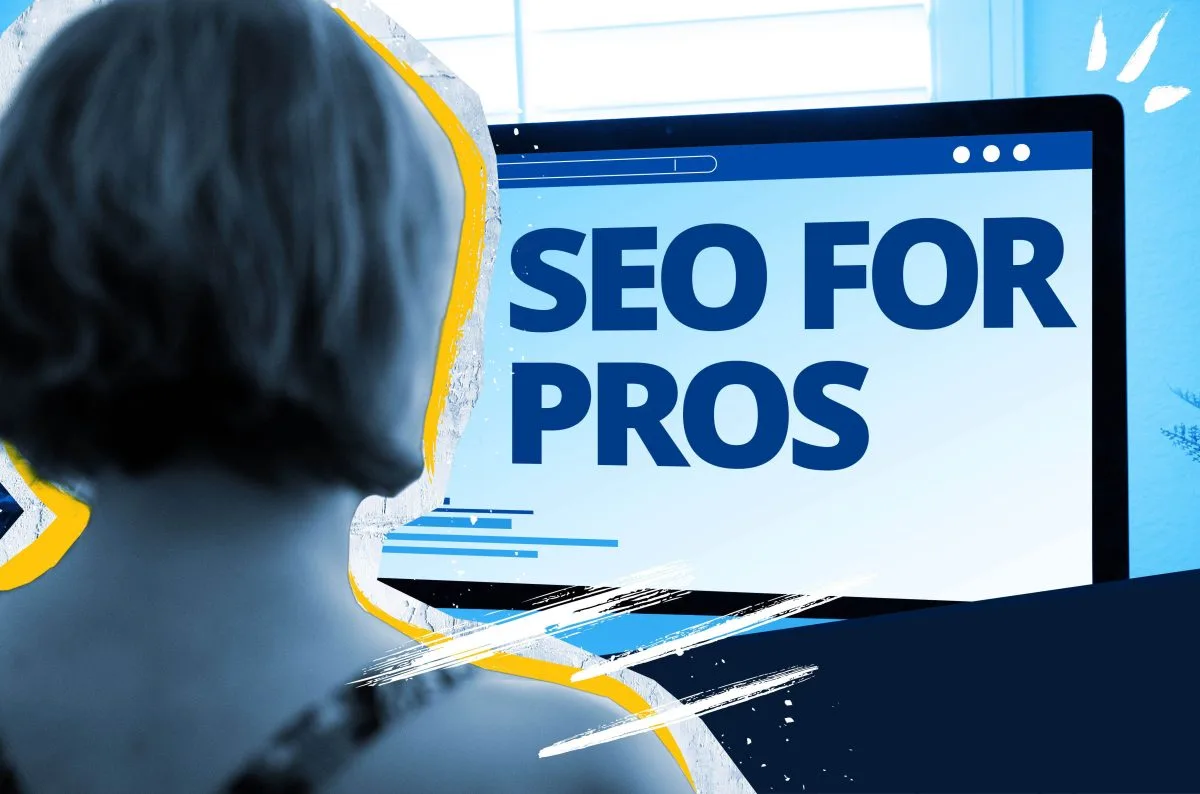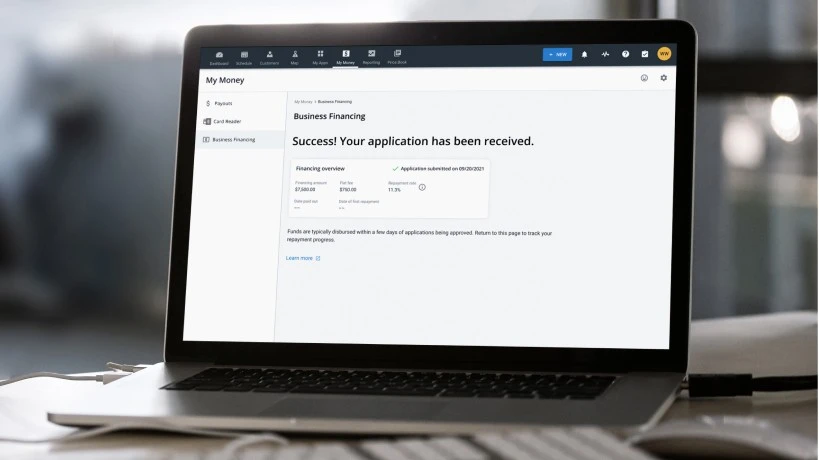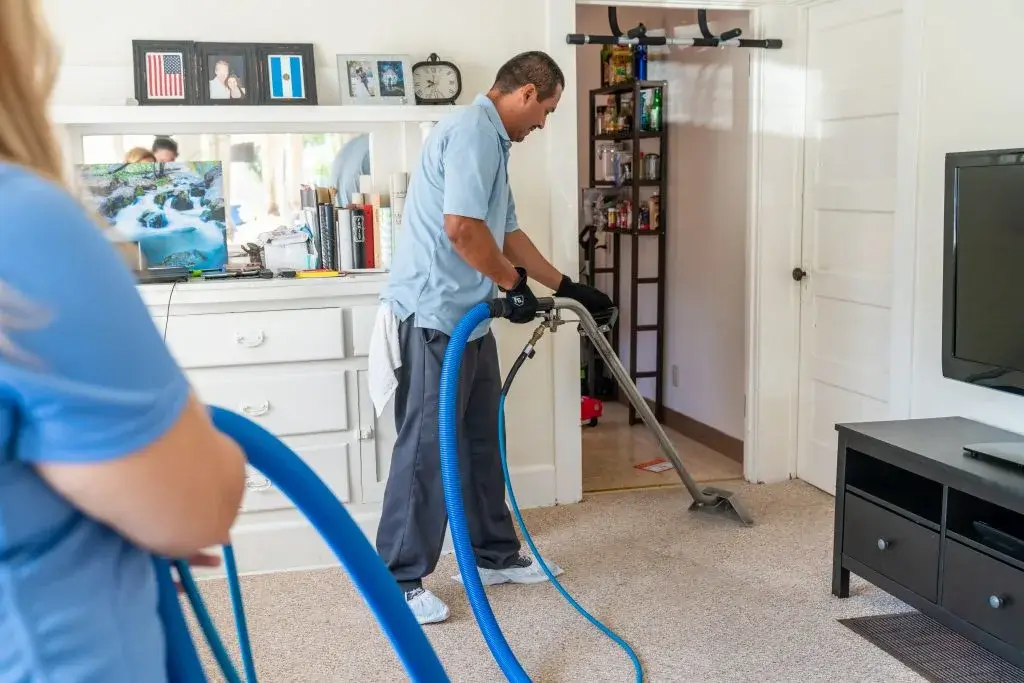
Do you love clean spaces? Do you find yourself both relaxed and also energized when wiping down counters to make them sparkle, eradicating dust bunnies from various corners, and working that vacuum like nobody’s business? If that sounds like you and you have a bit of an entrepreneurial spirit, then why not consider starting a cleaning business?
Trust us—there is a big business opportunity out there for those who can help take cleaning off the plate of homeowners and business owners alike. Consider that many homeowners put off cleaning for six months. Maybe more. Why? Well, because the vast majority of us don’t love to clean. So if you do, the world is your oyster.
But this might have you wondering about the estimated cleaning business start-up cost. In this article, we’ll give you some insights into what you need to know about getting your business off the ground, and what you should expect for start-up costs for a cleaning business.
Jump To Each Cleaning Business Start-Up Cost Section
- How to Estimate Your Cleaning Business Start-Up Expenses
- Choose Your Niche: Residential vs. Commercial Cleaning
- Essential Equipment Costs for Cleaning Businesses
- Licenses and Legal Requirement Fees
- Insurance Costs: Protect Your Cleaning Business
- Marketing & Advertising Costs for New Cleaning Businesses
- Transportation & Fuel Costs
- Team Training Costs
- Additional Start-Up Costs You Should Plan For
- Hiring Help? Budget for Employee Wages
- Technology and Cleaning Software Costs to Manage Your Business
- Prepare for Unexpected Costs and Emergencies
- How Software Can Minimize Cleaning Business Start-Up Costs
- Cleaning Service Software From Housecall Pro Helps Businesses Cut Costs & Save Time
How to Estimate Your Cleaning Business Start-Up Expenses
Let’s start with some simple calculations to figure out how much its going to cost to get your cleaning business up and running. And we have some great news for you. It might not be as much as you think.
When starting a cleaning business, it’s important to understand the difference between initial investments and recurring costs. Your initial investments are one-time expenses, such as equipment purchases and legal fees. For example, you’ll need to budget for vacuum cleaners, mops, cleaning solutions, and other necessary tools. Additionally, securing any business licenses or permits will fall under these start-up costs.
Recurring costs are those expenses that you’ll encounter on an ongoing basis. These can include things like wages if you have employees, insurance premiums, and the costs of marketing and advertising. While equipment is typically a one-time cost, marketing and transportation are continual expenses that can easily add up if not properly planned.
Many new business owners overlook these, but investing in marketing early on is super important for growing your client base. Likewise, reliable transportation is necessary for providing services—the last thing you want is to be late to a client’s home or business.
Prioritizing equipment and legal fees will keep you from overspending right off the bat. Remember, you don’t need to invest in everything all at once. In fact, we highly discourage it. At the same time, carefully budgeting for recurring expenses like marketing and fuel will prevent future financial headaches.
Choose Your Niche: Residential vs. Commercial Cleaning
It’s worth mentioning here that the type of cleaning business that you choose to pursue will have a big impact on those start-up costs. In most cases, starting a residential cleaning company will have fewer start-up costs than starting a commercial cleaning company.
Residential Cleaning
- Requires less expensive equipment like basic vacuums, mops, and cleaning supplies.
- Often involves more clients, as each household tends to have smaller, more frequent jobs.
- Lower initial investment but may require more marketing to secure a steady flow of individual clients.
Commercial Cleaning
- Requires higher upfront costs for industrial-grade equipment, such as floor buffers and commercial vacuums.
- Fewer clients but larger, long-term contracts with businesses and organizations.
- Higher initial investment but the potential for greater long-term stability with fewer clients.
Starting with residential cleaning allows you to grow at a manageable pace. Lower start-up costs mean quicker profitability, but the need to consistently find new clients may slow growth. With the right investments, your business can expand into commercial cleaning, giving you access to larger contracts and higher profit margins over time.
Essential Equipment Costs for Cleaning Businesses
So, we know you want to know how much all of this is going to cost. Here are some estimates based on our market research.

Buying vs. Leasing Equipment
Based on the costs shared above, one of the key decisions you’ll face is whether to buy or lease. This choice depends largely on your financial situation and the type of business you’re running.
On average, the cost of cleaning supplies per month for a small business can range between $50 and $300, depending on the size of the operation and the unique needs of your cleaning clients.
Licenses and Legal Requirement Fees
Most clients will not hire you without proof of proper licensing. Getting a permit or business license from your local government provides clients with a bit of added peace of mind that you are who you say you are and they can feel safe working with you.
Mandatory permits, such as business licenses, vary by location, but in most cases, you can expect to pay between $100 and $500 to meet local regulations. This fee allows you to operate legally and lets your clients know you are compliant with necessary legal standards.
Beyond the basic business license, you’ll also need to account for costs related to compliance with other local regulations. Here are the things that impact the costs associated with compliance.
- Zoning laws
- Environmental regulations
- Worker certifications
Skipping these legal requirements can put your business at risk. Fines for non-compliance are often a percentage of your company’s gross revenue, which can cripple a new business.
Free ebook download: How to Grow Your Carpet Cleaning Business
Insurance Costs: Protect Your Cleaning Business
Next up—business insurance. This is just as important, if not more important, than the business license we mentioned above. In a cleaning business, things can go wrong. Items can break. Floors can get damaged. You may even run into a wall, causing damage to the drywall. When these things happen, someone has to pay for the cost of repair. And if those damages occurred on your watch while you were providing services, the chances are that those expenses will fall to you.
Thankfully, business insurance isn’t all that expensive in the grand scheme of things. And, the right policy will provide coverage and financial protection for things like damage, lawsuits, car accidents on the way to or from a client location, injury to your employees, and more.
Here are the typical costs per month that you should plan for in your budget.

Marketing & Advertising Costs for New Cleaning Businesses
We know we have talked about this before in other Housecall Pro blogs, but the truth is that the old agage if you build it they will come doesn’t really apply here. With more than 875,000 cleaning companies in the U.S., you need marketing and advertising to help differentiate yourself from the competition and get homeowners and business owners want to work with you.
Generally speaking, you’ll want to reserve about 8% of your annual revenue for marketing and advertising efforts. That might seem like a lot, but overall, this spend will pay itself forward for years to come.
Here are the typical marketing-related start-up costs for cleaning businesses.

Transportation & Fuel Costs
We all know that gas costs these days are higher than we want them to be. Though the numbers certainly tend to fluctuate, gas prices have been sitting over $3.00 per gallon for quite some time. And depending on the service area that you determine, you’ll be putting a lot of miles on your vehicle. So, you need to be sure to account for fuel and other car-related expenses as part of your cleaning company start-up costs.
That said, when considering transportation for your cleaning business, you might wonder if investing in a company vehicle is worth it. Leasing or buying a branded vehicle can help build your brand awareness as you travel between jobs, but it comes with higher upfront costs. On the other hand, using your personal car may save money initially but could lead to wear and tear on your vehicle. If you’re just starting, using your own car may be more practical, with the option to upgrade later.
To help manage fuel expenses, optimizing your routes is key. Housecall Pro’s scheduling features allow you to group jobs by location, reducing unnecessary travel time and cutting down on fuel costs. This can make a noticeable difference, especially when you’re covering a larger service area.
Team Training Costs
One of the biggest mistakes that a new owner of a cleaning business can make is failing to properly train their team. It’s so easy to assume that everyone knows how to vacuum a floor or brush cobwebs off the ceiling. But there’s so much more to it than that. You may have certain chemicals you use that require various procedures for safety. You may have a certain approach to cleaning windows and patio doors to avoid streaks. Whatever it is, you’re employees won’t know how to do it right if you don’t teach them.
But just how much does it cost to train a new cleaning crew team member? It really does vary. As a rule of thumb, assume that you’ll spend just over $1,000 training a new employee. Much of this is for their hourly wages on the job, being supervised or educated on your cleaning procedures. And remember that proper training and managerial support can lower your risk of attrition, and that can save you a pretty penny for your cleaning business.
Here is a quick checklist of things you may wish to train your new employees on.
- Proper use of cleaning chemicals: Prioritize safety and effectiveness.
- Equipment handling: Teach correct use of vacuums, mops, and other tools.
- Cleaning techniques: Streak-free windows, dusting methods, floor care.
- Customer service: How to interact professionally with clients.
- Time management: Completing tasks within scheduled timeframes.
- Health and safety protocols: Prevent injuries and accidents on the job.
Get In Touch: 858-842-5746
Let us earn your trust
On average, Pros increase monthly revenue generated through Housecall Pro by 50% after their first year.
See plan options and feature breakdown on our pricing page.
Additional Start-Up Costs You Should Plan For
We know you might be feeling a bit overwhelmed with all of this information. But the truth is that when you add it all up, it may be more affordable than you think to start a cleaning business. And, you can do much of this in phases, investing in more and better equipment and team members as you grow. That said, there are a few more expenses that you should plan for.
Office Space and Utilities
Though you may decide to operate your business virtually, the chances are that you will want to invest in some sort of storage or office space. Keeping large, expensive equipment in your vehicle when it is not in use can be dangerous, subjecting yourself to theft and related losses. Plus, you may need a central location that your employees can go to get what they need for their daily client visits.
If you have decided that a physical space outside of your home is the best path to take, here are the expenses you should account for.

Hiring Help? Budget for Employee Wages
If you are ready to hire employees, take that as a good sign. It means your business is ready to grow and you are in demand. But just how much should you pay a cleaning business employee? To begin, you should know that the federal minimum wage is $7.25 per hour. However, most states will have a higher number that you need to meet. That said, paying your employees just your state’s minimum wage might not be enough to keep your employees around—and attrition is expensive.
Presently, the average wage of a cleaner in the U.S. is $15.00 per hour. To find the right rate for your employees, do market research in your area and get insights into what your competitors might be paying. Also, be sure to pay attention to the experience and expertise that the employee brings to the job. Some employees may come with a proven track record and years of experience, thus possibly making them eligible for a higher hourly wage.
A related expense you need to plan for as well is a payroll system. This is the best way for you to track employee hours and their performance in real-time. Housecall Pro’s maid service software includes a payroll function that can make all of this easy so you can focus on providing a great client experience.
Technology and Cleaning Software Costs to Manage Your Business
While you may feel like managing your new cleaning business manually on some spreadsheets might be the best way to go, we encourage you to take things up a notch. Investing in cleaning software from day one will help you stay organized and save time. With software like Housecall Pro, you can handle everything from job scheduling, estimating and invoicing to payment processing, all in one place. This makes it easier to manage daily operations, track client payments, and keep your team on schedule.
Many businesses start by using separate tools for CRM, invoicing, and payroll, which can quickly add up in subscription fees. Using multiple platforms can also make it harder to keep everything in sync. An all-in-one solution like Housecall Pro not only consolidates these functions but also cuts down on costs by offering everything in a single package, simplifying your business operations.
Prepare for Unexpected Costs and Emergencies
Last but certainly not least, we highly encourage you to create a contingency fund—aka an emergency fund—to make sure you have funds available if you run into cash flow issues or business roadblocks. A good rule of thumb is to set aside 10 to 20% of your operating budget for things like emergency staffing, equipment breakdowns, etc.
However, taking some steps up front to prevent the need for contingencies is really where it all begins. Here are some quick tips to help keep you from needing to dip into that cash reserve.
- Coordinated job management: Use scheduling software to avoid double bookings or missed appointments.
- Real-time updates: Stay informed on job progress and client feedback to catch issues before they escalate.
- Regular equipment maintenance: Prevent costly breakdowns by servicing tools and equipment regularly.
- Cross-train employees: Prepare your team to handle multiple tasks, reducing the need for emergency staffing.
How Software Can Minimize Cleaning Business Start-Up Costs
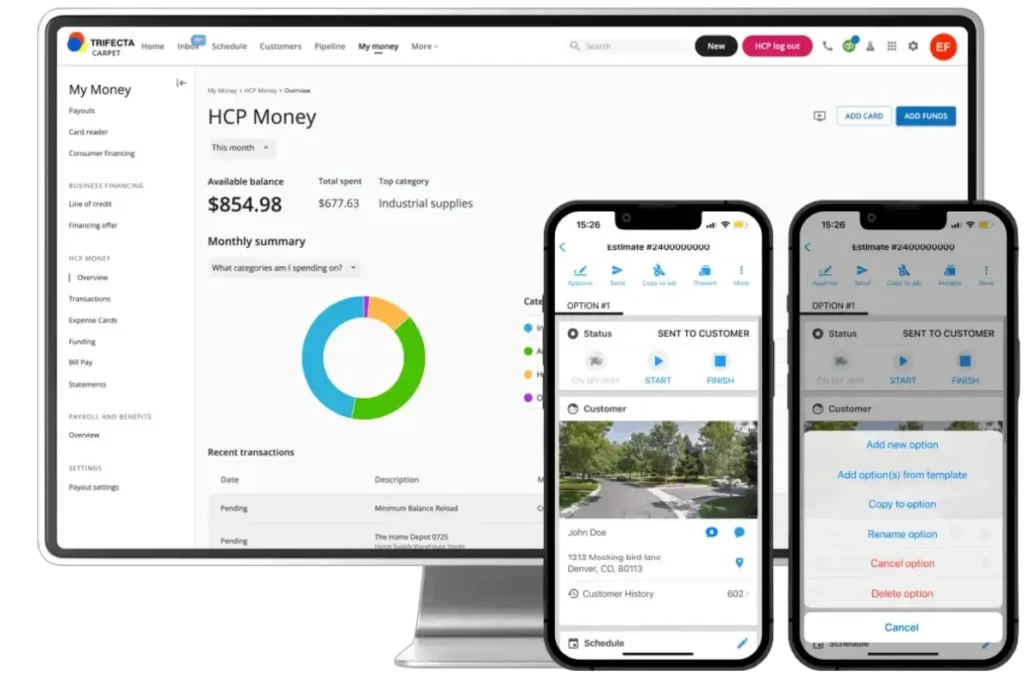
If you think there’s an app for that, we’re here to tell you that you’re right. Technology is everywhere these days, and for those in the cleaning business, software tools can save you both time and money.
Here’s how.
- Streamlined scheduling & dispatching: Avoid scheduling mistakes by managing recurring jobs and optimizing routes, saving time and fuel. Real-time updates and notifications keep everything running smoothly, reducing admin work and coordination issues.
- Financial & cash flow management: Automated invoicing and easy payment options, like click-to-pay and storing card info, help speed up payments and keep cash flow steady.
- Customer management: Features like 24/7 online booking, automated messaging, and a customer portal improve client retention and lower marketing costs.
- Marketing and lead generation: Built-in tools for managing reviews and running email campaigns help you find new clients without needing additional software.
- Administrative efficiency: Digital processes cut down on paperwork, printing costs, and manual errors.
- Online booking for your website: Adding an online appointment booking tool to your website allows clients to schedule services anytime, reducing back-and-forth communication and making it easier to secure new business.
Cleaning Service Software From Housecall Pro Helps Businesses Cut Costs & Save Time
At this point, you probably have a pretty good picture in your head of how much to expect in terms of cleaning business start up costs. But, let’s simplify it a bit by putting it all in one place as a quick reference.

Based on these figures, your cleaning business start-up costs will vary widely depending on your niche—residential or commercial—and the size of your operation. On average, you should expect to spend between $500 and $3,000 monthly for basic operations. Additionally, one-time costs, such as equipment purchases and employee training, will also factor into your initial investment. With thoughtful planning, you can spread out these expenses over time as your business scales and grows.
So, want to see how cleaning business software can help simplify your business operations? Sign up for a free 14-day trial with Housecall Pro today.


